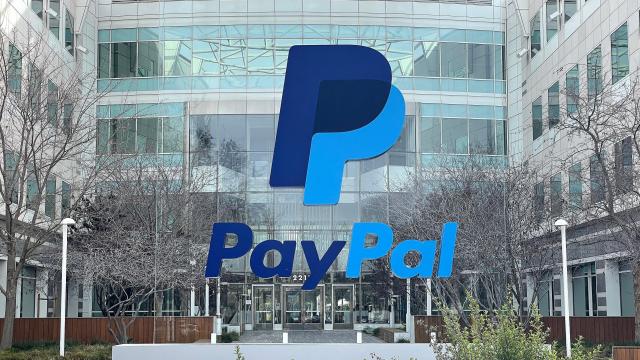PayPal is diving into the messy world of crypto with a new stablecoin pegged to the US dollar, aptly and uninventively named PayPal USD. The company’s entrance into the industry comes at a time of deep regulatory uncertainty as federal agencies and lawmakers continue to grapple with the fallout of multiple major crypto implosions last year.
In a blog post, PayPal said its new stablecoin will be “fully backed by US dollar deposits” and can be purchased or sold for $1.00 on the company’s website or app. PayPal says owners can use the currency to make payments, fund purchases at checkout, and convert between other supported cryptocurrencies. The company believes its digital currency could “reduce friction for in-experience payments in virtual environments,” and make it easier to send remittances or transfer money between family and friends.
“Today, we’re unveiling a new stablecoin, PayPal USD (PYUSD). It’s designed for payments and is backed by highly liquid and secure assets. Starting today and rolling out in the next few weeks, you’ll be able to buy, sell, hold and transfer PYUSD,” the company tweeted.
PayPal USD is being issued by a New York firm called Paxos Trust Co, and will be built on the Ethereum blockchain. The currency officially launches today but will become more widely available to US customers with PayPal Balance accounts “in the coming weeks.” The company says its coin will also be accessible on its subsidiary Venmo as well. All of this, PayPal says, is part of a longer-term vision of using the stablecoin to “to transform payments in web3.”
“The shift toward digital currencies requires a stable instrument that is both digitally native and easily connected to fiat currency like the U.S. dollar,” PayPal President and CEO Dan Schulman said in a statement. PayPal declined to comment further.
As the name suggests, stablecoins are intended to function as a less volatile, safer form of crypto since they are pegged to a tangible asset. That doesn’t make them impervious to risk though. Last year, the so-called stablecoin Terra collapsed and wiped out an estimated $450 billion from the crypto market. Prosecutors in South Korea have since indicted Terra co-founder Daniel Shin and nine staff members over their alleged involvement in the currency’s demise. Meta pursued its own US dollar-pegged stablecoin dubbed Diem for years but finally gave up on the project over concerns it would be axed by federal regulators.
US Regulators are generally taking a hard look at cryptocurrencies. In June, the Securities and Exchange Commission filed a lawsuit against crypto giant Coinbase, accusing the company of violating securities laws by operating as an unregistered broker, exchange, and clearing agency. That came just days after the agency issued another lawsuit against crypto exchange Binance similarly accusing it of operating as an illegal exchange.
PayPal would not comment when Gizmodo asked about crypto’s uncertain regulatory future but noted its intends to work “closely with regulators as the industry evolves.”
